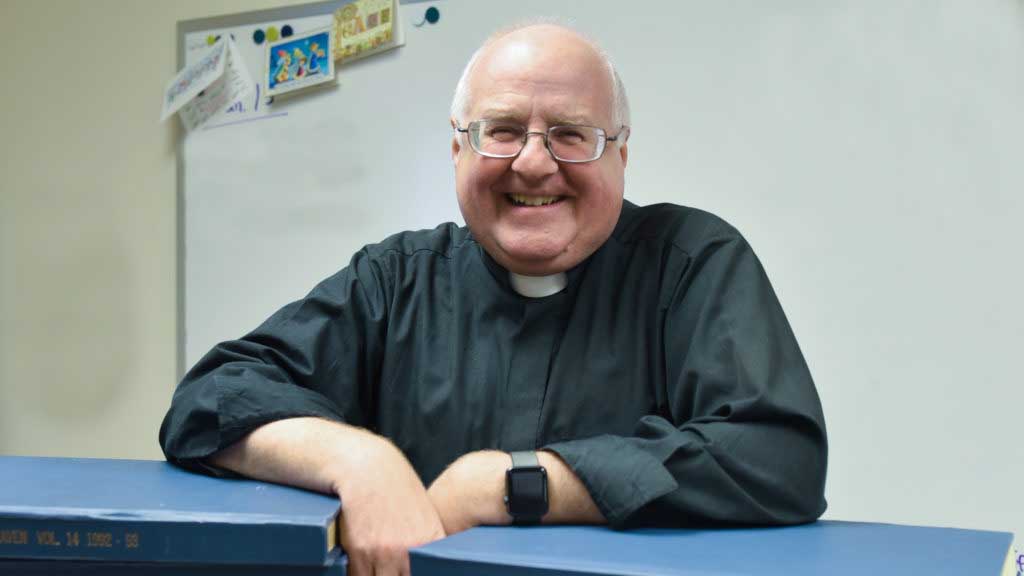
by Father Mark Goldasich
There’s a wonderful gift we often take for granted. In fact, you’re making use of it at this very moment: It’s the ability to read.
According to the National Literacy Institute, 21% of adults in the United States today are illiterate and 54% of adults have a literacy below a 6th grade level. Shockingly, our country ranks 36th in literacy worldwide.
My maternal grandma, an immigrant from Croatia, was illiterate. Being a female, it was more important when she was growing up there to take care of family chores rather than attend school.
As a kid, I remember seeing how nervous she would be when endorsing a check. Even holding a pen was foreign to her and the “X” that she made — she didn’t know how to write her name — was always squiggly.
Maybe my Grandma Modrcin’s experience was the catalyst for my love of reading and deep appreciation of that gift.
In the June 28 issue of The Leaven, I jokingly suggested that Pope Francis was reading my Leaven column. I said this because I figured my Easter column on laughter “inspired” the pope to gather 105 comedians at the Vatican on June 14.
Well, it’s eerie but the pope “stole” my idea again, this time about reading! On July 14, he issued a letter “on the role of literature in formation.” Coincidence? I think not!
Seriously, the pope presented a well-reasoned and detailed reflection “on the value of reading novels and poems as part of one’s path to personal maturity.”
There’s much to be pondered in the pope’s words, and I can only highlight a few here. For a great summary — as well as a link to the whole letter — Google “Pope Francis role of literature.”
Here are some of his thoughts:
• “[W]e should select our reading with an open mind, a willingness to be surprised, a certain flexibility and readiness to learn, trying to discover what we need at every point of our lives.”
• “Literature also proves essential for believers who sincerely seek to enter into dialogue with the culture of their time, or simply with the lives and experiences of other people.”
• “This is a definition of literature that I like very much: listening to another person’s voice. We must never forget how dangerous it is to stop listening to the voice of other people when they challenge us!”
• “When we read a story . . . we become more sensitive to the experiences of others. We step out of ourselves to enter into their lives, we sympathize with their struggles and desires, we see things through their eyes and eventually we become companions on their journey.”
• “[L]iterature teaches us patience in trying to understand others, humility in approaching complex situations, meekness in our judgment of others and sensitivity to our human condition.”
It’s only fitting, I think, to end this column with a story:
Martin Buber tells of his paralyzed grandfather who was asked to talk about his great teacher, the famous and holy Baal Shem Tov. The grandfather replied by recalling how the holy man used to jump up and down and dance when he was praying. Being swept up in the fervor of the story, the grandfather himself stood up and began to jump and dance to show how the master had done it. At that moment, the grandfather was completely healed of his paralysis. (Story adapted from Brian Cavanaugh’s “The Sower’s Seeds.”)
Can the ills of our hearts and our world really be healed by stories? Why not pick up a good book and see!

